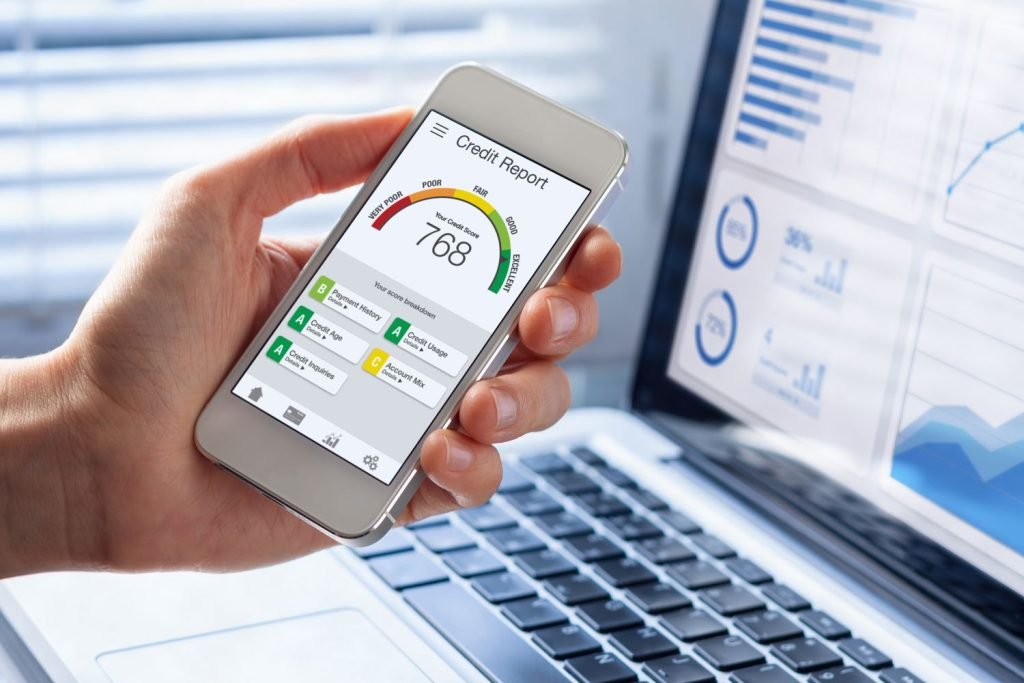Life emergency loans rent can throw unexpected challenges your way, and financial struggles are among the most common and stressful difficulties. One of the most pressing concerns many individuals face during such times is being unable to pay rent, putting their homes at risk. Whether you’ve lost your job, encountered unexpected medical bills, or dealt with a sudden family emergency, falling behind on rent can lead to eviction, damaging your credit, and causing severe emotional distress. In such situations, emergency loans for rent can provide a vital lifeline.
This article will explore how emergency loans for rent can help you maintain housing during tough times. We’ll look into the different types of loans available, how to secure them, what you should consider before applying, and how to avoid falling into a debt trap. Additionally, we’ll cover practical tips for managing your financial health in times of crisis to ensure you remain resilient in the face of hardship.
What Are Emergency Loans Rent?
An emergency loan for rent is a financial product that provides quick access to cash specifically for the purpose of paying rent during times of financial hardship. These loans typically come with faster approval times compared to traditional loans, and they offer a short-term solution to prevent eviction and keep a roof over your head.
Types of Emergency Loans for Rent
Payday Loans: Payday loans are short-term loans that are typically due by your next payday. These loans can be used for rent and other urgent expenses, but they come with high-interest rates and fees. They are often easy to access but should be used with caution, as they can quickly lead to a cycle of debt.
Personal Loans: A personal loan is an unsecured loan that can be used for a variety of purposes, including paying rent. These loans often come with lower interest rates than payday loans and may offer longer repayment periods, making them more manageable.
Rent Assistance Programs: Many non-profit organizations and government programs offer rent assistance to those facing financial difficulties. These programs are typically need-based and do not require repayment. However, they may have specific eligibility requirements and may take some time to process.
Credit Card Advances: If you have a credit card with available credit, you may be able to take out a cash advance to cover your rent. While this option may offer immediate relief, it often comes with high fees and interest rates.
Home Equity Loans: If you own a home and have equity, you may be able to use a home equity loan or line of credit to borrow money for rent. This type of loan requires your home as collateral, meaning if you fail to repay it, the lender may take possession of your property.
When Should You Consider an Emergency Loan for Rent?
It’s important to recognize when it’s appropriate to seek an emergency loan for rent. If you find yourself facing a financial crisis that you are unable to resolve with your current resources, an emergency loan could provide the relief you need. Here are a few situations where an emergency loan might be necessary:
Loss of Employment:
If you’ve lost your job unexpectedly or are temporarily unable to work, it may be difficult to cover your rent. An emergency loan can help bridge the gap until you find another source of income.
Medical Emergencies:

Unexpected medical bills can lead to financial hardship, especially if you are unable to work due to illness or injury. In these cases, using a loan to cover your rent can help you avoid eviction while you address your medical situation.
Family Emergencies:
Sometimes, life’s crises extend beyond personal circumstances. A family emergency, such as a loved one’s death or hospitalization, can drain your finances. An emergency loan for rent can offer temporary relief during such difficult times.
Natural Disasters or Accidents:
If you’ve been affected by a natural disaster, fire, or accident that has disrupted your income or living situation, an emergency loan can help you cover rent until you can get back on your feet.
Debt Consolidation:

If you are facing multiple bills and debts, consolidating them into one loan to cover rent can provide temporary relief. However, this should be approached with caution, as debt consolidation can lead to higher long-term costs if not carefully managed.
How to Secure an Emergency Loan for Rent
Securing an emergency loan for rent is a straightforward process, but it’s essential to follow specific steps to increase your chances of approval and ensure you get the best deal. Here are some key steps to take:
Assess Your Financial Situation:
Before you apply for any loan, it’s crucial to assess your current financial situation. Do you have other sources of income? What other debts do you have? Can you realistically repay the loan in the agreed timeframe? Understanding your financial standing will help you make an informed decision.
Determine the Amount You Need:
Only borrow the amount necessary to cover your rent. Avoid borrowing more than what is needed, as this can lead to unnecessary debt. Lenders typically ask for the exact amount of money you need, so be sure to have this information ready.
Research Loan Options:
Different lenders have varying terms, interest rates, and fees. It’s important to shop around to find the best loan for your needs. You can apply for loans from traditional banks, online lenders, or credit unions. Consider the loan’s interest rate, repayment terms, and any hidden fees.
Check Your Credit Score:

While emergency loans can be secured even with poor credit, it’s still a good idea to check your credit score before applying. A higher score can help you secure better loan terms and lower interest rates. If your credit score is low, consider seeking loans that don’t require credit checks.
Gather Required Documentation:
Lenders will require certain documents when applying for an emergency loan. These may include proof of income, identification, and proof of residency. Ensure you have all the necessary paperwork ready to speed up the approval process.
Apply for the Loan:
Once you’ve selected the right lender and gathered your documents, you can proceed with the loan application. Some lenders offer online applications, which can make the process faster and more convenient.
What to Consider Before Taking an Emergency Loan for Rent
Interest Rates and Fees:
Emergency loans often come with high-interest rates and fees. Be sure to read the fine print and fully understand the terms and conditions before accepting the loan.
Repayment Terms:
Make sure you know when the loan is due and whether you can comfortably make the payments. Missing payments can lead to higher fees and damage your credit score.
The Consequences of Non-Repayment:
If you are unable to repay the loan, you may face penalties, higher interest rates, or even legal action. Before applying for an emergency loan, assess whether you will be able to repay it in full.
Alternatives to Emergency Loans:
In some cases, you may be eligible for rent assistance programs or payment deferrals from your landlord. It’s worth exploring these alternatives before taking on new debt.
Getting Back on Track: Using Emergency Loans to Cover Rent Payments
Financial challenges can be overwhelming, especially when unexpected expenses arise. One of the most stressful situations is finding yourself unable to pay rent due to a sudden financial setback, such as job loss, medical emergencies, or family crises. When you’re unable to meet your rent obligations, it can put you at risk of eviction and significantly disrupt your living situation. However, there is a solution—emergency loans.
Emergency loans are financial products designed to provide quick relief during financial emergencies. If you’re struggling to cover rent, an emergency loan can be a lifeline to help you avoid eviction and get back on track. In this article, we’ll explore how emergency loans work, the different types available, and how you can use them to cover rent payments in times of financial hardship.
What Are Emergency Loans for Rent?
An emergency loan for rent is a short-term loan that can be used to cover your rent payments during times of financial distress. These loans are typically offered by banks, credit unions, payday lenders, and online lenders, and are designed to offer quick access to funds. They are meant to be a temporary solution when you face difficulties making your rent payment on time, helping you avoid eviction and buying you time to resolve your financial issues.
Emergency loans are generally unsecured, meaning they don’t require collateral such as your car or home. However, they often come with higher interest rates compared to traditional loans, due to their short-term nature and the risk the lender takes on by offering them.
Types of Emergency Loans for Rent
There are several types of emergency loans available to help you pay rent. It’s important to understand each type and determine which one is the most suitable for your needs.
Payday Loans
Payday loans are short-term loans that are typically due by your next payday. These loans are usually for small amounts and come with very high-interest rates. Payday loans are easy to qualify for, and they often don’t require a credit check. However, they should be used with caution as their fees can quickly escalate, and failing to repay on time can lead to a cycle of debt.
Personal Loans
Personal loans are unsecured loans that you can use for various purposes, including paying rent. They typically come with lower interest rates than payday loans and may offer longer repayment periods. Personal loans are a good option if you need a larger amount of money to cover multiple expenses, including rent.
Rent Assistance Programs
Many non-profit organizations, charities, and government programs provide rent assistance to individuals facing financial hardships. These programs are typically need-based and can help pay for part or all of your rent. Rent assistance programs may require you to meet certain eligibility criteria, but they are a valuable resource if you qualify.
Credit Card Cash Advances
If you have a credit card with available credit, you may be able to take out a cash advance to cover your rent. While this is a quick option, it comes with high-interest rates and fees. It’s important to pay off a credit card advance as quickly as possible to avoid accumulating significant debt.
Emergency Lines of Credit
Some financial institutions offer lines of credit specifically for emergencies. These lines of credit work similarly to credit cards, allowing you to borrow money up to a certain limit. They often come with lower interest rates compared to payday loans and credit card advances, making them a more affordable option for those who need quick funds.
How to Secure an Emergency Loan for Rent
Securing an emergency loan to cover rent payments is often a straightforward process, but it’s essential to approach it wisely. Here’s a step-by-step guide to help you get the funds you need:
Assess Your Financial Situation
Before applying for an emergency loan, take a step back and assess your overall financial situation. Do you have other sources of income? Can you realistically repay the loan within the timeframe? Understanding your financial position will help you make informed decisions about how much money to borrow and which type of loan is right for you.
Calculate the Exact Amount Needed
Only borrow what you need to cover your rent payment. Avoid borrowing extra money that you may not need, as this can lead to unnecessary debt. Many lenders will ask for the exact amount of money you need, so be sure to have this number ready before applying.
Research Loan Options
Not all emergency loans are the same. Compare interest rates, fees, and repayment terms from different lenders to find the best deal. Consider the reputation of the lender as well, and check if there are any hidden charges or penalties associated with the loan.
Check Your Credit Score
Although emergency loans for rent may be available for people with bad credit, knowing your credit score before applying is still a good idea. A higher score can help you secure better loan terms, such as lower interest rates. If your credit score is low, some lenders may offer loans without a credit check, though the terms might not be as favorable.
Gather the Necessary Documentation
Most lenders will require proof of income, identification, and possibly proof of residence when applying for a loan. Be prepared to provide this documentation quickly to avoid delays in the approval process.
Apply for the Loan
Once you’ve selected the right loan and lender, you can apply for the emergency loan. Some lenders offer online applications, which can make the process faster and more convenient. Be sure to double-check all the information on your application before submitting it.
Repay the Loan On Time
Once you’ve secured the loan and received the funds, it’s important to stay on top of your repayment schedule. Missing payments can lead to additional fees and interest charges, and may negatively impact your credit score.
When Should You Consider Using an Emergency Loan for Rent?
Emergency loans should be considered a last resort, as they can come with high-interest rates and fees. Here are some scenarios when using an emergency loan for rent might make sense:
Job Loss or Reduced Income
If you’ve lost your job or experienced a reduction in income, an emergency loan for rent can help cover rent until you find a new source of income.
Medical Emergencies
Unexpected medical expenses can quickly drain your finances. If you’re unable to work due to an injury or illness, an emergency loan can provide short-term relief for rent payments.
Family Emergencies
If you are dealing with a family emergency, such as caring for a sick loved one, and you are unable to pay rent, an emergency loan can offer temporary assistance.
Unexpected Expenses
Sometimes life throws unexpected expenses your way, such as car repairs, home repairs, or legal fees. If these costs leave you unable to pay rent, an emergency loan can bridge the gap.
Alternatives to Emergency Loans for Rent
Rent Assistance Programs
Many local charities, government programs, and non-profit organizations offer rent assistance during times of hardship. These programs are often need-based and may offer grants or loans to help cover your rent without high-interest rates.
Payment Plans with Your Landlord
Many landlords are willing to work with tenants who are struggling financially. Consider reaching out to your landlord and explaining your situation. You may be able to negotiate a payment plan or temporary deferral until you can catch up.
Family and Friends
If possible, consider reaching out to family or friends for financial support. Borrowing money from loved ones can be a less expensive alternative to taking out a loan, especially if they can offer you a no-interest loan or a delay in repayment.
Also Read: Fast Cash: Exploring Your Options For Emergency Loans
Conclusion
Emergency loans for rent can be an invaluable resource when facing a financial crisis, offering a quick way to avoid eviction and keep a roof over your head. However, it’s important to use these loans wisely. Always assess your financial situation, understand the loan terms, and explore alternatives before applying for a loan. Remember that loans should be a short-term solution, and building a financial safety net for future emergencies is crucial for long-term financial stability.
FAQs
What is an emergency loan for rent?
An emergency loan for rent is a financial product that helps cover rental payments during a financial crisis, offering temporary relief for individuals facing hardship.
Can I qualify for an emergency loan if I have bad credit?
Yes, some lenders offer emergency loans for people with poor credit. However, these loans often come with higher interest rates or less favorable terms.
How long does it take to get an emergency loan for rent?
Emergency loans can often be approved within a few hours or days, depending on the lender’s process.
What is the maximum amount I can borrow for rent?
The amount you can borrow depends on the type of loan and lender. Payday loans usually offer smaller amounts, while personal loans may provide larger sums.
Are there alternatives to emergency loans for rent?
Yes, alternatives include rent assistance programs, payment deferrals, or negotiating a payment plan with your landlord.
Can I apply for an emergency loan online?
Yes, many lenders offer online applications for emergency loans, making it easier and faster to access funds.
Do emergency loans for rent require collateral?
Some emergency loans, like payday loans or personal loans, do not require collateral. However, loans like home equity loans may require your home as collateral.





